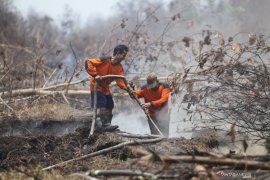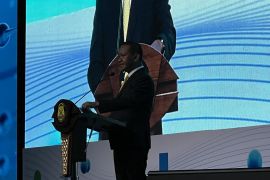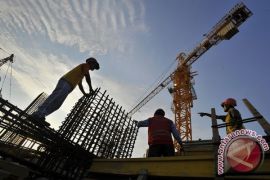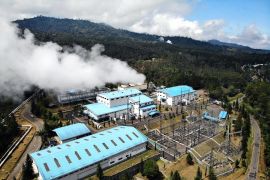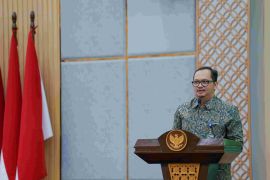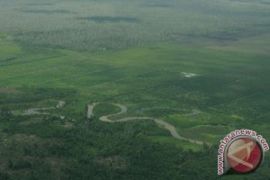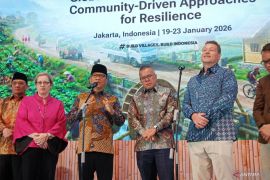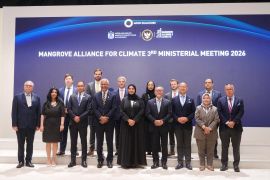Head of the Agriculture Ministry's Soil and Fertilizer Instrument Standard Testing Center, Ladiyani Retno Widowati, noted that peatlands have been partly utilized for various economic activities that support people's lives.
Economic activities on peatlands begin with making drainage channels to lower the groundwater level.
"The impact of land subsidence and increased GHG emissions are the impacts of these practices," she said in a statement released on Wednesday.
Therefore, Indonesia has set an ambitious target in the Enhanced Nationally Determined Contribution (ENDC) document, committing to reduce GHG emissions by 29 percent by 2030.
As a concrete step, the government is trying to reduce deforestation, prevent fires, and strengthen peatland management by establishing the Peatland and Mangrove Restoration Agency.
The Agriculture Ministry, International Center for Research in Agroforestry (ICRAF), and National Research and Innovation Agency (BRIN) are also conducting a project on "Improving the Management of Peatlands and the Capacities of Stakeholders in Indonesia" (Peat-IMPACTS Indonesia).
"This project has been ongoing since 2020, carried out in South Sumatra and West Kalimantan to support the NDC target by implementing better peat landscape management and strengthening farmer capacity, through various training and agricultural cultivation practices," Widowati said.
Secretary of the ministry's Agricultural Instrument Standardization Agency, Haris Syahbuddin, said that if the good practices of Peat-IMPACTS in South Sumatra and West Kalimantan are applied across Indonesia, there would be a positive impact not only for the nation but also the world.
Indonesia's peat ecosystem, with the Peat Hydrological Unit (KHG) area reaching 24 million hectares, plays an important role in mitigating global climate change.
"Peat ecosystems have an important function of storing carbon, regulating hydrology, and supporting biodiversity," he said.
"However, unsustainable management such as excessive drainage can lead to fires that release large amounts of GHG, resulting in climate change, air pollution, and economic losses," he added.
Meanwhile, ICRAF Indonesia program director Andree Ekadinata said that Peat-IMPACTS aims to strengthen the capacity of stakeholders and create real solutions for adaptive and sustainable peat management.
"The involvement of various levels of government and local communities is important for supporting the success of this project," he added.
Principal investigator of the Peat-IMPACTS project, Sonya Dewi, said that the program has been designed to assist the government and local governments in sustainable peat governance.
According to her, building the capacity of stakeholders in sustainable peat management is a long-term investment for the future of the ecosystem.
Several methodological approaches and tools have been introduced and used to help stakeholders support development planning and governance.
The capacity-building effort has also involved technical training for government agencies in making and enforcing policies, training in sustainable agricultural practices for local communities, and integration of peat conservation into private sector business models.
"Peat-IMPACTS also develops local peat content curriculum at the elementary and middle school levels, as an effort to introduce, understand, and learn about peat from an early age, as well as the establishment of WikiGambut, a digital knowledge platform that provides comprehensive information on peat ecosystems, their management, and sustainable practices to maintain their sustainability, educate the community, and support peat conservation efforts in Indonesia," Dewi informed.
Related news: BMKG to install 12 towers to track GHG, climate change
Related news: Indonesia affirms commitment to Paris Agreement at COP29
Translator: Ahmad Rafli Baiduri, Yashinta Difa
Editor: Aditya Eko Sigit Wicaksono
Copyright © ANTARA 2024

